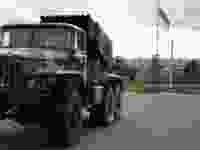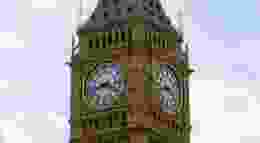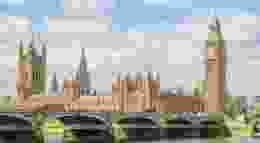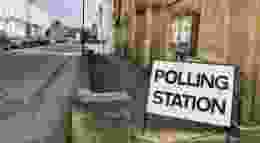
John Baron MP: We have now entered the battle for democracy
As Russian troops move into Ukraine from the north, south and east, John Baron writes that the West must now stand up for democracy globally, and bolster both its hard and soft power in order to achieve its goal of rendering Russia's actions 'a failure'.
Following Russia's invasion, the first priority is to help Ukraine, bolster NATO allies and assist in humanitarian efforts, but there is frustration across the Commons given many of us have been warning about Russia since its invasion of Georgia in 2008, and we have been ignored. Instead, governments took their eye off the ball with interventions in the Middle East and North Africa, not recognising that the greater threat was closer to home. You have to stand up to the playground bully, yet our response over the last 14 years has been woefully weak. We have now entered the battle for democracy globally, and we must step up to the plate, both militarily and with our soft power.
Russian assurances that they had no intention of invading Ukraine have turned out to be hollow. It seems doubtful that they were ever serious about the diplomatic track, and that this horrifying large-scale invasion was the idea all along. Changing internationally-recognised borders through force of arms breaks one of the cardinal rules of the post-1945 world order, and the regrettable conclusion is that we have entered a new Cold War with Russia, along with a wider new battle for democracy.
The realisation that a new period of hard power menace from Russia is upon us means that we need to leave behind us the overlong honeymoon of the 'peace dividend' that, in particular, European nations banked in the 1990s. In truth this penny should have dropped long ago – it is 14 years since Russian forces invaded Georgia (Russian troops still occupy 20 per cent of Georgia's internationally-recognised borders) and eight years since the Russians invaded eastern Ukraine and annexed the Crimean peninsula.
Though there was a chorus of condemnation from the West, and in 2014 some sanctions, the international response was muted and limited. A large part of this was due to the West, which is the primary guardian of the international rules-based system, being distracted by wars of choice in the Middle East, Afghanistan and North Africa.
Though these conflicts did serve to increase resources allocated to the military, they also ensured NATO forces reconfigured away from traditional state-on-state warfare towards combatting land-based insurgencies where total air supremacy was taken for granted. For much of the last decade, for example, the RAF fielded no dedicated maritime patrol aircraft, the number of frontline soldiers have been continually cut and air defence neglected. Now that we are seeking to combat a range of tier one threats from air, land and sea, the serious shortcomings in this approach are shown up all too plainly.
It is essential that Britain, along with its NATO partners, spends significantly more on defence, putting us back on a Cold War footing. As we know from our history, diplomacy carries more weight when backed up by serious and credible military capabilities. Whilst it is essential that diplomacy remains our first port of call, sometimes force is required to stand up to bullies. This is what the world learnt to its cost in the 1930s, and what we need to remember now with Mr Putin and others like him.
In the short term, NATO should continue its programme of beefing up deployments across Eastern Europe, the High North and the Black Sea. This reminds the Russians that NATO is serious about protecting its members, and remind them of our Article V undertaking. The Baltics and Poland will understandably be feeling menaced by Russia, and Putin and his inner circle need to be certain that every inch of NATO territory will be defended by us all.
In the longer term, NATO governments must put extra resources into meaningfully increasing their defence capabilities, coupled with the resolve to see these through perhaps for years or decades. Extra efforts should also be made to ensure Turkey remains on side, but at the same time the Turkish Government and military, which enjoy relatively close relations with their Russian counterparts, could serve as useful interlocutors. Back channels which go beyond Putin and his immediate circle could have a value in the coming years.
In conjunction with these efforts, it is imperative that the new crop of sanctions are deployed which are commensurate with the Russians' actions. The Germans' decision to cancel Nord Stream II is a good start, immediately demonstrating to the Russians that their actions have a painful consequence. The current round of British sanctions appear underwhelming, and I trust and expect the Government to announce a much heavier round of sanctions very soon. Moreover, institutions such as the National Crime Agency should be allocated more resources so they can track down the dodgy money that undoubtedly swills around our financial institutions. For too long we have turned a blind eye to this, but this now also needs to change.
The invasion of Ukraine is further evidence that we have now entered the battle for democracy globally. Increasing our military capability is necessary. However, Britain and the other democracies also need to bolster our soft power. Part of this is by being better democracies – the attack on the US Capitol was a terrible advert from the world's flagship democracy – but an equally large part is ensuring our soft power institutions are not neglected. We are in a battle of ideas with authoritarian countries , and one of the main reasons Putin is invading Ukraine is because of the threat that an increasingly prosperous and democratic country poses to him and his cronies.
Yet last year, for the want of £10 million, the Government required the British Council to close 20 overseas offices, and depending on the outcome of the current funding settlement, it may be required to close a further 20. Notwithstanding the loss of soft power heft that these 40 closures will represent, countries like Russia and China will notice this visible retreat from the world stage. Western soft power was a major factor in winning the Cold War, and ceding this critical ground to our adversaries is very short-sighted.
A further strand to the European response is the imperative to wean ourselves off Russian oil and gas. Putting money into the Russians' pockets which they later use to fund the military that invades Ukraine and menaces us is unacceptable, and for too long governments across Europe have been slow (or unwilling) to appreciate this. Closing down otherwise serviceable nuclear reactors is not sensible, and in the medium term we may even have to reconsider our well-intentioned decisions to wind down domestic hydrocarbon production to reduce dependence on Russia while our nuclear and renewable sectors are established.
The Prime Minister is right that the Russian invasion of Ukraine must fail, and must be seen to fail. Since the Second World War we have all taken the international rules-based system for granted. This system of collective security, backed by the UN Charter, ensures that smaller states don't have to 'suffer what they must' at the hands of larger bullies. It is worth protecting.
Finally, the invasion of Ukraine has worrying implications for nuclear non-proliferation. When Ukraine declared its independence it found itself in possession of one of the world's largest stockpiles of nuclear weapons, which it gave up voluntarily to Moscow in exchange for territorial guarantees. Ukrainians may be forgiven for now wondering whether that was the right decision – as might any other country concerned about an outside attack. Iran will no doubt be observing events with great interest.

John Baron is the former Conservative MP for Basildon and Billericay and a former Shadow Health Minister.





